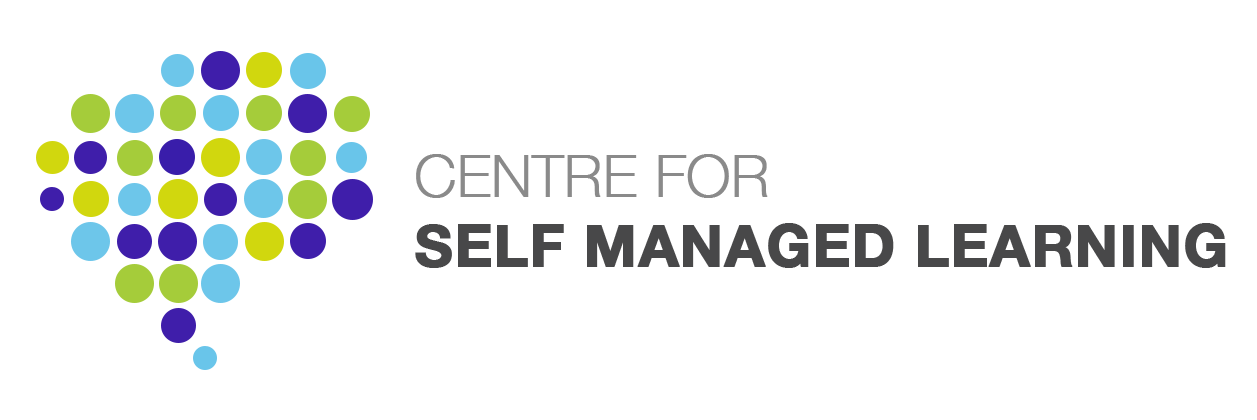At the Self Managed Learning College, each learner is able to pursue their own learning interests and get extensive support in doing this. By avoiding classrooms, imposed curricula, timetables and unhelpful testing we are able to give young people a real education that helps them to lead a good and meaningful life.
The Programme Structure
Within the College, the learning programme provides a structure within which learners are encouraged to take control of their own learning. This approach has three elements at its core: the Learning Agreement, the Learning Group (which is supported by a Learning Group Adviser) and the Learning Community (if there is more than one group). These bring focus and coherence to the learning activity of students.
We all have the potential to be learning all the time, and whether we make the most of an opportunity depends to a great extent on where we put our attention. Identifying learning goals (and writing them up in the Learning Agreement) helps to put our attention on what we want to learn, and what we need to do to learn it.
The learning week can involve many different activities, and many different people. Only one of those activities is attending the learning group meeting. Yet the learning agreement provides a way to pull all the learning together in terms of a person’s aims. And the learning group provides a structure through which, among other things, an individual can keep track of their progress with their learning goals.
Learning Groups
Learners join a learning group of up to 6 young people with an adult learning group adviser. It is through learning group meetings that the learning agreement is formulated and refined. In the process, the learning group becomes a supportive, stable base for a peer group of learners of a similar age. When the group meets, each individual has a time slot within which to explore the learning activities they are undertaking, what has been learnt from what has been done since the last meeting, and to talk through any problems that have come up on the way to achieving their learning goals. It is up to each learner to decide how to make best use of their individual time slot. From the learning group, the learner can then go and use whatever resources are appropriate. Regularly attending the learning group meetings is a requirement of any SML programme.
Learning Group Advisors
In a role which is somewhat like a mentor (and quite unlike a teacher or tutor), a learning group adviser is in the learning group to keep its focus on learning. Their responsibility is to ‘hold’ the structure and ensure that each learner has an individual time slot to address their own learning. It is not a controlling role, but rather is one of assisting learners to help each other. Peer group support and challenge is very valuable, and it requires learners to listen to and understand one another. Much of the time, learning group advisers operate like other learning group members: asking questions, offering things for a learner to consider, helping the learner think through next steps, etc.
Learning Agreements
A learning agreement is a document, written by the learner, laying out what and how they want to learn by writing down the answers to a series of questions. Such a document provides a structure, driven by the learner, for what they want to do. It provides a guide to the learner’s intentions. This also provides a record of the learning programme and a basis for resource planning. By combining all the learning needs it is easier to see what is needed by the learner as a whole by way of learning support. Learning agreements are best developed in the context of the learning group. And the group becomes the place for agreeing the document. This can drive decisions about what public examinations to take (if any).
Learning Community Meetings
We start each morning with a community meeting which is chaired in rotation; it could be a nine-year-old chairing the meeting or one of the adults. The role of the community meeting is to work out collective needs such as agreeing rules for working, allocating resources, organising trips or agreeing on bringing in visitors. Indeed anything can be raised by students that is relevant to the running of the whole community.
Quotes from parents
Parent are a vital stakeholder group in the success of the College and its students and below are some typical comments about how they see the work and their children’s progress:
“I suppose from [the students’] point of view, it is a sort of inspiration because whatever they want to do – a way is found for them. So they start thinking that most things are actually possible. Whereas the other way is that nothing is possible and everything is too hard …and then you just get; ‘I can’t do this, I can’t do that.’”
“I see it as her getting lots and lots of help. It has blown me away actually with her being allowed to be herself; with what she has chosen to do and how interested she is in things.”
“From the moment that I walked in it felt perfect. I didn’t even realize anything like this existed. Just how relaxed the children were, how at ease everybody was with each other, adults and children.”
“X has changed enormously, he is much more self motivated, he gets on with his work, he doesn’t need to be told to do it, because that’s not the way the Learning Centre works.”
… and finally
Some basic ideas that underpin our approach to learning (NB these are supported by rigorous research):
- Learning is not just ‘head’ stuff. We need to learn in all sorts of ways and about all sorts of things. Learning includes some of the things students have already focused on such as martial arts or being more self confident or taking photographs or caring for others.
- Setting goals and having a level of control over achieving this is part of creating a happy and fulfilled life. This especially applies to learning activity.
- We often learn most with and from others. These ‘others’ are often, for students, not adults but others in the same boat e.g. in the same age range.
- If we are to work and operate in the ‘real world’ getting on with others is key to being human.
- Relationships are important. In order to have good relationships with others, listening to others is important.
- If we can make relationships work we have a chance to make communities work. The Self Managed Learning College models an active community where people feel part of something worthwhile.
- People are all different – and this needs respecting in a learning community.
- Traditionally education has tried to make people think together and feel separately. The better way is to think separately and feel together. Community only works if we feel connected to others – and in a positive way – whilst respecting differences.
- Each person needs space to be able to raise what they like in a learning group. And they need to be listened to and supported by others in the group.

